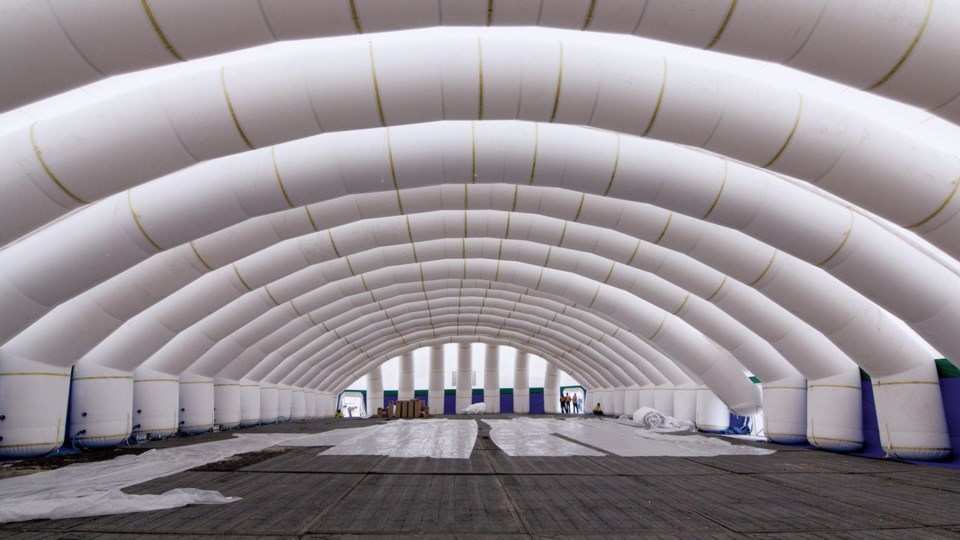Media coverage of a company securing a bid to provide mobile structures for triage, isolation and accommodation in Mathias Colomb Cree Nation (MCCN) at Pukatawagan inaccurately portrayed the situation, Indigenous Services Canada (ISC) says.
CBC Newfoundland and Labrador reported May 3 that Dynamic Air Shelters, in partnership with First Pac West from Vancouver and Dymond Group in Ottawa, had been awarded a contract to provide a medical shelter for screening and triage, four isolation units and four accommodation units. The shelters need to be in place by May 21 under the terms of the contract.
Dynamic Air Shelters CEO David Quick told CBC the materials for the shelters are being packaged in small bundles that can be flown in by small aircraft that can land on the community’s short airstrip and be unloaded into the back of pickup trucks.
That news prompted Assembly of Manitoba Chiefs (AMC) Grand Chief Arlen Dumas to say May 4 that his organization was blindsided by the news and that he would have preferred if First Nations in Manitoba and First Nations-owned construction companies would have been selected to complete the work.
MCCN Chief Lorna Bighetty said in a May 6 press release that her First Nation wasn’t consulted on the contract, and that a solution it proposed - to complete the First Nation’s youth centre, which would take two to three weeks and provide 6,000 square feet of space for pandemic response purposes as well as a permanent facility - would be preferable to bringing in outside workers to erect mobile shelters.
ISC spokesperson Leslie Michelson said the department has been working with First Nations across the country to explore the feasibility of retooling existing spaces such as schools or band offices as temporary alternative health care facilities during the COVID-19 pandemic and providing funding for temporary health care infrastructure on a case-by-case basis if such space is not available. ISC’s initial discussion with MCCN on infrastructure to support their COVID-19 preparedness took place April 24.
“The department collaborated with Public Services and Procurement Canada to undertake a request for proposals for specialized mobile structures to support enhanced screening/triage, the isolation of community members, and additional accommodation space for health professionals to ensure that Pukatawagan and other communities with similar needs have the resources they need, when or if they need them,” said Michelson. “In this case, the primary care staff working in the community indicated that the current facilities did not have sufficient capacity to respond to a potential outbreak.”
When a proposal is accepted, Michelson said, ISC informs communities to discuss how many structures they need, with any surplus structures being placed in other communities based on their need.
“However, the media coverage pre-empted this discussion with the community and also had an inaccurate portrayal of the initiative,” said Michelson. “The department deeply regrets the confusion and stress that this has caused for the community and other regional First Nations leaders including the Assembly of Manitoba Chiefs and has apologized to the community leadership.”
ISC has also committed $353,000 to MCCN for youth centre upgrades to begin this work as an immediate priority. The department held discussions with MCCN May 5 and May 6 about options for temporary infrastructure related to the COVID-19 pandemic and continues to discuss further infrastructure needs, including the use of temporary structures.




